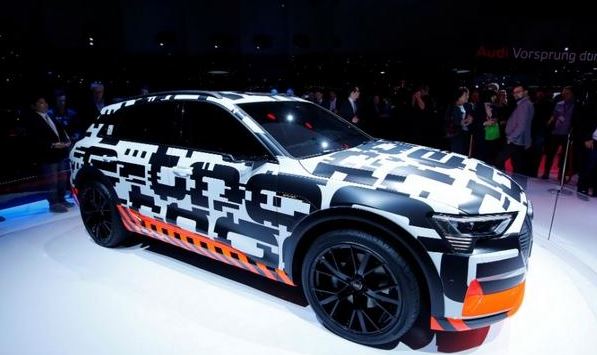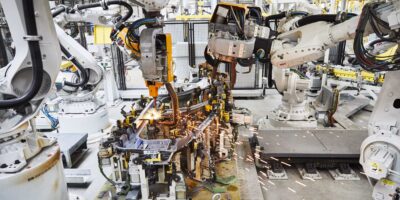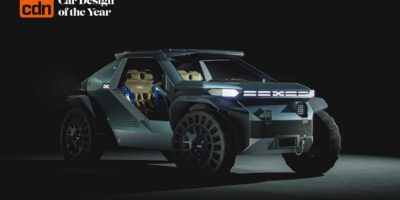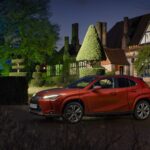Audi plans to sell 800,000 battery-electric and hybrid-powered cars in 2025, as it also expects to generate an operating profit from digital services of €1 billion by that time.
The German company will launch more than 20 electrified vehicles by 2025 using Volkswagen Group’s (VW) new MEB modular platform and vehicle underpinnings. Audi’s 800,000 goal would be about one-third of projected deliveries in 2025, exceeding the target range of 15% to 25% of competitors BMW and Mercedes-Benz.
The announcement was made at the company’s annual general meeting. ‘2018 is a key year for Audi with an enormously high speed of change that will gradually put us back on the offensive’ said Rupert Stadler, Chairman of the Board of Management of AUDI AG. ‘We will continue clearing up the diesel crisis and will restructure large parts of our global organisation for the course we have set for the future. At the same time, we are approaching the climax of the biggest model fireworks in our company’s history and are entering the age of electric mobility with the Audi e-tron.’
Audi’s first pure EV will be launched in August. The e-tron SUV will go up against the Jaguar I-PACE while other manufacturers are also developing models in the market. The automaker, which delivered 1.88 million cars globally last year, currently offers three plug-in hybrid vehicles.
Connected future
Audi is also developing an integrated IT platform for vehicle connectivity and digital services. Using a shared high-performance backend, the models from Audi and the other brands of the Volkswagen Group will be usable compatibly; this means, for example, that customers’ settings and content will be smoothly transferred between the automobiles of the various Group brands.
‘We want to have premium electric cars and digital services that are also attractive in economic terms. That is our clear ambition for the mobility of the future,’ points out Alexander Seitz, Member of the Board of Management for Finance, IT and Integrity. ‘To that end, we are utilising Group synergies significantly more effectively and are releasing resources for strategic projects with our Action and Transformation Plan.’
Audi is also rejuvenating and expanding its model portfolio this year, with more than 20 new market launches. The new Audi design language and the new, fully digital operating concept in the interior will be introduced in all segments, starting with the premium full-size class. Following the launch of the new A8 in late 2017 and the A7 in March 2018 in first markets, a new top model will come onto the market as of the middle of this year: the new generation of the A6. To reduce costs, Audi is ceasing production of some models, including three-door versions of its A1 and A3 vehicle lines, as well as cutting component and administration costs.
Autonomous airport parking being tested by Volkswagen
Volkswagen (VW) Group is currently testing a solution that could save air passengers time when it comes to searching for a space in airport car parks.
The carmaker has used data from the INRIX 2017 Global Traffic Scorecard to find that on average, Germans spend 41 hours a year looking for a parking space, with the British wasting 44 hours and residents of New York using 107 hours a year. With this in mind, the company has announced its vision, in future, we simply leave our car at the entrance to the car park and the car looks for a parking space and parks autonomously – without any stress, scratches and especially without wasting any time.
A pilot project is currently taking place in a multi-storey car park near the terminal of Hamburg Airport. There, experts are testing autonomous parking with Volkswagen, Audi and Porsche vehicles. The project is part of the mobility partnership with the Free and Hanseatic City of Hamburg that aims to develop Hamburg as a model city for urban mobility. The target is for the first customers to be able to test the new autonomous parking service at the beginning of the next decade.
Johann Jungwirth, Chief Digital Officer of the Volkswagen Group, says: “With new mobility solutions we want to give people more time and quality of life by reducing the time spent and stress in road traffic. Our vision is mobility that is available to everyone, everywhere and at all times at the press of a button – and autonomous vehicles play a decisive role here. People currently spend around 30 percent of their driving time in urban areas looking for a parking space. Autonomous parking like we are testing here at Hamburg Airport is an important step on the way to autonomous driving – as an integrated full-service concept via an app. We are putting a consistent focus on people and their needs.â€
In the test scenario, users can book a parking space at Hamburg Airport from home using an app and simply leave their car at the entrance to the multi-storey car park. Everything else is done automatically: the vehicle looks for a free parking space – if required at an electric charging station. This is made possible by simple pictorial markers in the car park, which the vehicle sensors use for orientation.
The Volkswagen Group is investing more than €34 billion in new technologies for the future such as electric mobility, autonomous driving, digital networking of all road users and new mobility services as part of its “TOGETHER – Strategy 2025†plan that includes building for the future of Urban Mobility. The manufacturer believes that towns and cities are decisive for the future of mobility, as it is here that the problems are most pressing and the potential for change is greatest.








